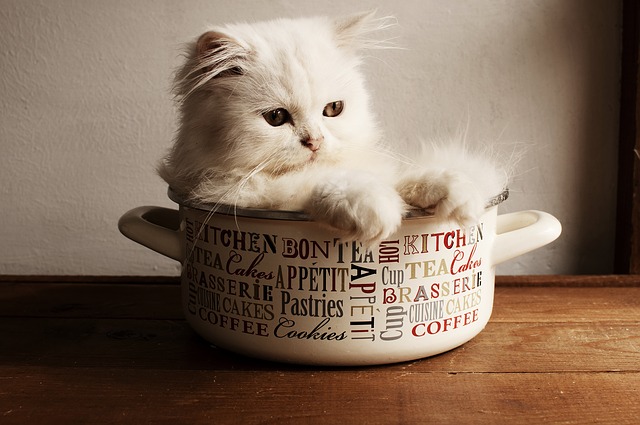Why do cats like the smell of bleach? – My cat Bob used to go crazy when I used bleach to clean my bathtubs.
He would wait patiently until I had poured bleach all over the tub to deter that gross mildew and then he would go and rub himself all over it!
Thankfully, he never ingested the bleach – which was a good thing too since bleach can be quite toxic to cats.
If your cat loves the smell of bleach and has got you wondering ‘why do cats like the smell of bleach?’, then I have the answer for you.
Let’s find out…
Why Do Cats Like the Smell of Bleach?
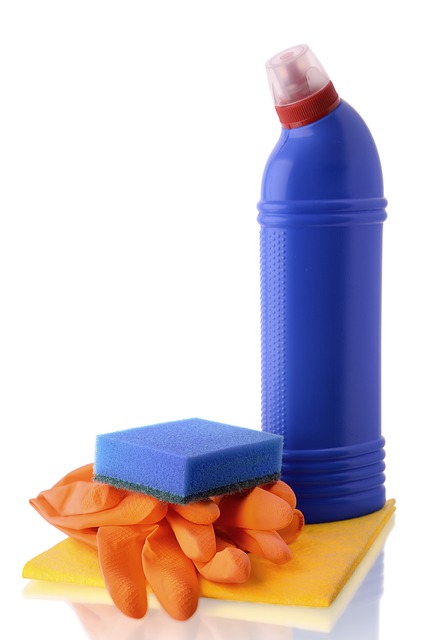
There are several reasons why cats love the smell of bleach.
Although, a lot of these reasons are human speculations, until we smart humans devise a way of knowing exactly ‘what goes on in my cat’s brain?’ these will have to do:
A. Bleach is reminiscent of catnip for cats
Many humans believe that their cats have the same reaction to bleach as they do to catnip. They rub their faces and bodies on bleach and start purring at its scent – just the way they do when there is catnip around.
Catnip and catmint are alluring herbs for cats. Their scent excites cats and many cats literally go crazy for these herbs.
The same thing happens when cats sniff bleach. There is speculation that the same or similar volatile compounds present in catnip and catmint may be also present in bleach and chlorine.
This could be the reason behind ‘why do cats like the smell of bleach?’
B. It is like cat ‘territory marking’
Another reason ‘why do cats like the smell of bleach?’ is that they believe it to be another cat’s urine.
The ammonia smell of chlorine and bleach may be reminiscent of another cat’s urine – again this is just speculation – since we don’t know exactly what a cat may be thinking.
Therefore, if your cat seems to rub itself on bleach or urinates over the area where you recently poured bleach, then, your cat is trying to eliminate the other ‘cat’s scent’ and mark the territory to show that it is his/hers.
C. It mimics pheromones
The chlorine content of bleach could also mimic cat pheromones. That is the reason why many cats start drooling, rolling, or purring when they smell bleach.
In the next section, I will discuss what cats do when they sniff bleach.
What Do Most Cats Do When They Smell Bleach?
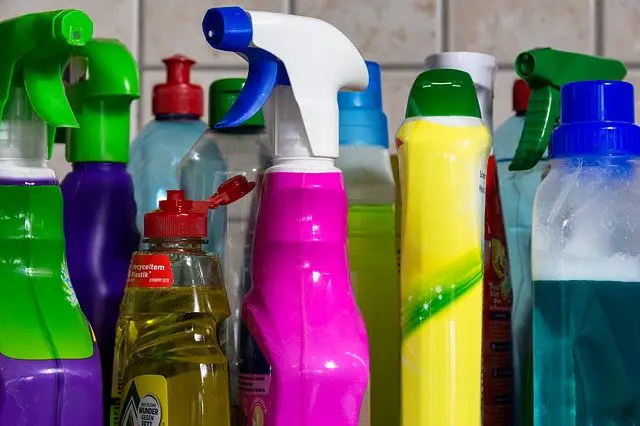
My cat Bob always knew when it was bathroom cleaning day!
He would sit outside the bathroom waiting patiently for me to pour (diluted) bleach over the tub and toilet. The moment I was done, he would purr, roll, and even rub its cheek in it!
Here are a few ‘reactions’ cats have when they smell bleach:
1. Intense happiness
Many cats have an intense experience to bleach- just one sniff and they go nuts!
Some experts believe that bleach triggers a feeling of happiness in cats. That is why they roll, flip, rub, and simply go crazy for it. Some cats also meow and growl at the smell of bleach.
Often, some cats become aggressive or even hyperactive upon sniffing bleach or chlorine. This may be because they think it is another cat’s urine.
Of course, this is usually short-lived happiness!
These ‘happy’ sessions only last for about 10 minutes, after which, most cats calm down. Also, it could take about 1-2 hours for them to become susceptible to the smell of chlorine bleach again.
2. Some cats have no reaction at all
Some experts believe that bleach sensitivity could be hereditary in cats.
This is because, many cats have no reaction to bleach at all. As many as 50% of cats may not even react to bleach.
3. Reaction to bleach may be age-dependent
The reaction to bleach in cats is mostly age-related. Most kittens show no reaction to bleach until after 6 months of age.
Now let us address an important question: is bleach safe to use around cats.
Is Sniffing Bleach Safe for Cats?
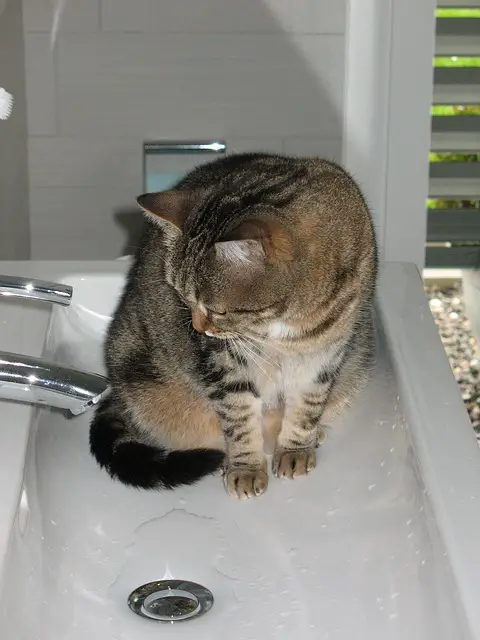
Has your cat peed on the carpet? Did you use bleach to clean up the stain? And now your cat is having a ‘happy reaction to bleach?’
Don’t worry, this is quite normal and mostly safe. The keyword here is ‘mostly’.
Most cats do not have any reaction after sniffing bleach, especially when it is diluted.
However, in case you use concentrated chlorine bleach or other cleaning products containing bleach, then the toxic fumes could be irritating to your cat’s skin and eyes – just as they are irritating to human skin and eyes.
Bleach is sodium hypochlorite – a chemical that can irritate the mucosal lining of human and pets’ organs.
That is why you must make sure to dry the cleaned spot thoroughly and only use bleach in super-diluted form.
Don’t worry – a majority of cats don’t ingest bleach – they just roll in it. However, their strong fumes could still irritate your pet’s eyes.
That is why you must only use diluted bleach if you have a cat at home. Better yet, you could switch to natural cleaning products in place of bleach.
In any case, your cat should be okay. Just make sure to ventilate the place well so that the bleach fumes dissipate further.
What Happens if a Cat Licks Bleach?
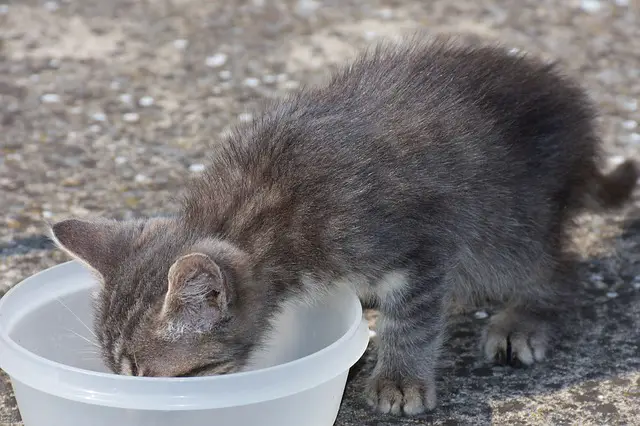
A few cats have a ‘bleach fetish’ because they are convinced that the ammonia smell of bleach is another cat’s wee.
Often, cats go and urinate in areas where you use bleach for cleaning. They might also rub or roll in bleach and inadvertently end up ingesting a little bit of it.
If a cat swallows concentrated bleach, it could develop ulceration in its mouth. Moreover, the strong fumes of bleach could cause eye irritation in your pet.
In rare cases, cats that lick bleach could experience bleach toxicity or bleach poisoning.
Don’t worry, only a small percentage of cats tend to experience bleach poisoning – most cats are smart enough not to drink large amounts of bleach.
However, if your pet isn’t eating or drinking normally afterward, please call your vet just to be on the safe side.
Signs and symptoms of bleach poisoning
Here are some symptoms of bleach poisoning in cats:
- Excess drooling or salivation
- Vomiting
- Loss of appetite and refusing to eat
- Constant mewing or crying – indicating abdominal pain.
- Eye irritation – pawing the eyes, eye redness, squinting, closed eye, etc.
What To Do If You Cat Has Ingested Bleach?
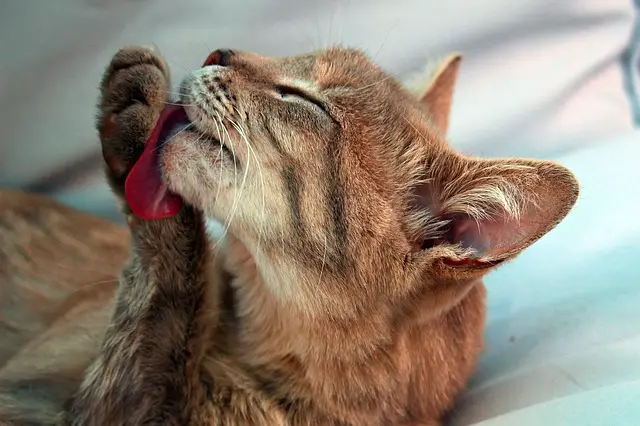
Even if your cat has ingested a bit of bleach, it should be okay. You can offer it some water, milk, or even some dry cat food mixed with water. This will dilute the bleach further.
Do not try to induce vomiting since the bleach could cause even more damage on its way out.
Keep observing your cat over the next few hours. If it is fine, then there should be no cause for concern. The important thing is to ensure that it is its usual active and cheerful self and eating and drinking normally.
In case your cat has eye irritation or is licking or rubbing its paws, then wash the affected parts with warm water. Do not use soap. Instead, use mild shampoo to wash your cats’ belly, paws, and face if it has rubbed itself in bleach.
If your pet starts vomiting, is refusing food, or appears to be in pain, then please take it to your vet.
Can Bleach Kill a Cat?
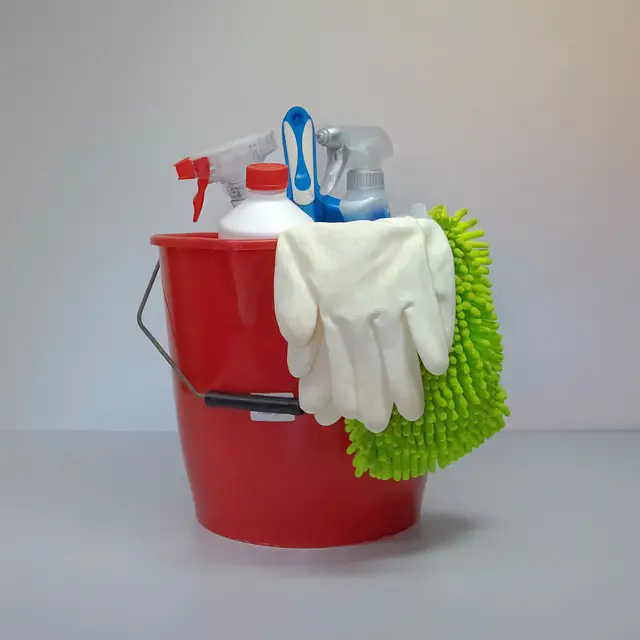
Now that you know the answer to ‘why do cats like the smell of bleach?’ then the next obvious question on anyone’s mind would be – can bleach kill a cat?
Yes, in large quantities, bleach could kill a cat.
If you have left a bucket of concentrated bleach near a cat who happens to love bleach and ingests some of it, then it could cause bleach poisoning in your pet. Minor symptoms include salivation or drooling, vomiting, and lot of pain.
If your cat vomits the bleach out, there could be a corrosive action on its way up – it could cause ulcers in its mouth and throat.
In extreme cases, cats could experience seizures and could die if they do not receive timely medical help. So rush your pet to the vet if you suspect your cat has ingested bleach.
How to Keep Your Cat Safe around Household Cleaning Products?
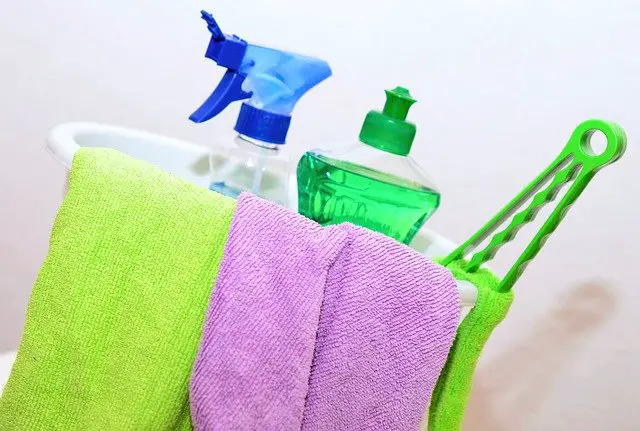
Cats are smaller than dogs and that is why they tend to have a more serious reaction to household cleaning products.
This is also the reason why you ought to be careful in choosing and using household cleaners when you have a cat at home. Here are some tips to keep your cat safe around household cleaning products:
1. Always dilute all cleaners before use
Check product labels – know the cleaners’ strength and concentration so you can dilute it accordingly.
Even if a cleaner is ‘labeled’ mild or pet-friendly you must still dilute it before use.
Always use the cleaner as recommended– do not overuse it. Remember – less is more when it comes to using cleaners around pets.
2. Keep cleaners out of the reach of pets
Cats are more likely to get in trouble with household cleaners as compared to dogs since they can easily jump up high on shelves and racks where we store such products.
As far as possible, keep all cleaners locked where cats cannot access them. Keep bathroom doors firmly closed. Cover dustbins with tight-fitting lids.
3. Rinse out tubs, buckets, mops
If you are in the habit of pouring bleach on bathroom floors or in buckets, mops, and tubs, then please rinse and dry them out.
4. Switch to herbal cleaners
Most herbal cleaners or an enzymatic cleaner – these are generally quite safe for use around pets. Note that some herbal cleaners contain essential oils which are toxic to cats.
So, learn to read product labels. When in doubt, check with a vet. Here is a list of essential oils that are toxic to cats.
5. Know when to seek help
If you suspect your cat has ingested something toxic, know the signs. Most common signs of poisoning in cats are vomiting, lethargy, abdominal pain, excess drooling, and lack of appetite. See your vet right away if you notice these signs.
FAQs on Why Do Cats like The Smell of Bleach
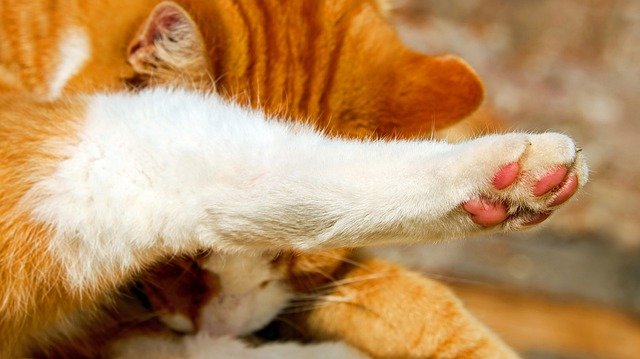
1. Do cats hate mothballs?
Yes, most animals hate the scent of mothballs. That is why gardeners scatter mothballs around gardens to keep stray cats and dogs away.
For pet parents, it is important to know that naphthalene in mothballs is toxic to cats can could cause poisoning. So please keep mothballs out of your cat’s reach.
2. Can Lysol kill a cat after drying?
Lysol is a common household disinfectant. Its active ingredient is phenol which is toxic to both cats and dogs.
If you use Lysol to mop your floors, please dilute it several times over before use. Even if your cat does not ingest Lysol, its residue could still get on your pet’s paws after you clean the floors with it.
Cats are self-groomers and they could end up ingesting Lysol from their paws, although in small amounts.
In most cases, diluted Lysol should not be toxic to cats after it has dried off the surface it is used on. However, to be on the safe side, please avoid using concentrated Lysol around your cat.
3. Is hand sanitizer toxic to cats?
If your cat licks your hand after you have used hand sanitizer, in most cases, it should not cause any adverse reaction. After all, your cat would have to ingest a large amount of sanitizer to actually have an effect.
The active ingredient in hand sanitizers is ethanol or ethyl alcohol which is toxic to cats but only if ingested in large quantities.
4. What other smells do cats love?
In addition to bleach, most cats love the smell of catnip, olive, fish, poultry, ginger, valerian, honeysuckle, and silver vine.
Conclusion
Why do cats like the smell of bleach?
Cats love the smell of bleach because it seems to contain the same volatile compounds as those found in catnip. Many cats also feel that bleach’s ammonia smell is another cat’s urine for territory marking.
Bleach could also give off the same effect as pheromones for cats. These are possible reasons why cats love bleach.
We hope this guide helps demystify this strange ‘feline behavior’.
